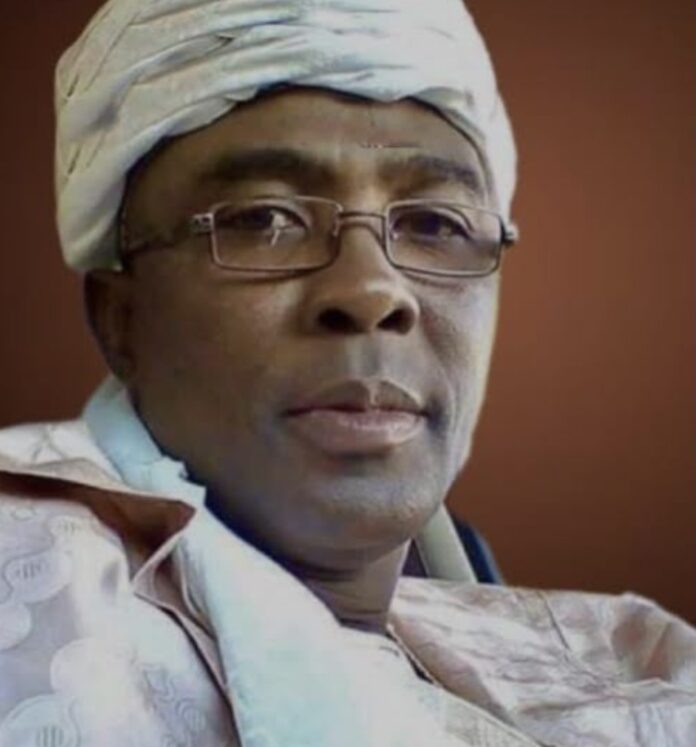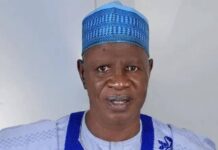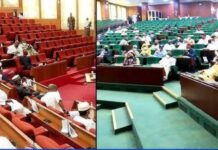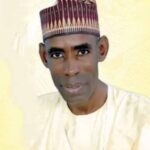Is Arewa the bantustan of Nigeria?, by Abu Shekara
A prophet is never honored in his own country but to be dishonoured in another man’s country is a fate far worse than that. That is the story of the Northern Hausa/Fulani, who choose to live in Southern Nigeria, while their hosts, the owners of that land have resolved that they have overstayed their welcome. The clear proof of this fact are the ugly scenes we see in the new media, every hour of every day, of armed local gangs in Southern communities treating their Hausa/Fulani fellow citizens like plague bearing pariahs under all sorts of disguises and pretexts.
The recent killing of 16 Hausa hunters in Orumi town in Edo State is only a manifestation of the sustained hate induced actions of communities against settlers of Northern origin all over that part of Nigeria. And there is a high possibility that even travellers from the North momentarily transiting through these areas will soon be subjected to the same treatment, in spite of occasional responses by constituted authorities against these gruesome incidents.
Of course in a reaction to the incident at Orumi, the Edo State Government has banned all unauthorised vigilante groups and sacked the Director of its own inland security network. But as it appears, these groups appear to exist in the localities of almost all states of the South and they are self-deployed to track down and apprehend “Fulanis” and “Hausas”, a tag that in fact includes any non-Southerner, who “stray” into their settlements.
READ ALSO: Uromi Massacre: Time to act, by Abu Shekara
The sights are grim. Viral videos on social media, proudly posted by these local guards depict scenes that are reminiscent of America of the slavery era and apartheid South Africa, when people of a certain color would not walk on a white dominated street, without being brutally accosted. Cattle driving herdsmen, menial workers and traders of Northern origin are being provocatingly accosted, halted and interrogated in the most demeaning fashion, on suspicion of being terrorists in front of rolling cameras.
The fact that the conductors of these horrid scenes do not bother about visually showcasing them to the world, shows that they feel justified in their actions, which a greater part of their Southern cyber audience hail as a treatment well-deserved by the victims. And by the standard of scientific poll taking, this general online response is a sample that may well represent the opinion of the average Nigerian in the South.
More disturbing is the obvious inaction of the traditional leaders of these hostile communities and their deafening silence over the savagery of their subjects. This is at the time when their Northern peers, are suing for sanity in the face of the extreme provocation of witnessing their subjects being brazenly terrorised.
After the Edo massacre, the Sultan of Sokoto chose not to remain circumspect on the incident. In in his traditional Sallah address to the Muslim faithful, only two days later, he instead enjoined peace and called for collective action on the prevailing insecurity in Nigeria. Similarly, one of the two disputed emirs of Kano, Muhammad Sanusi II, used the occasion to send a direct appeal to his people, who happen to be kinsmen of the Orumi victims, against any attempts at reprisal over the incident.
It has however become a reality that the Hausa/ Fulani has lost his constitutional right of movement or residence in a particular part of a country, of which he is a bona fide citizen but he is ironically, host to fellow citizens from all sections of Nigeria, who freely settle and thrive in his land. He has opened up his land resources to be exploited by each and every prospector from all corners of Nigeria but he is deprived of the reciprocal freedom to seek prosperity from the endowments of the homelands of the fellow citizens he has willingly let in through his door.
Right now, the status of the Northerner is no different from that of all the subjugated people’s of occupied and dominated regions in human history. The overlords can visit and live in his locality, take of it what they will, as they please but he will attempt to return the courtesy only at his own peril.
The scenario is crystallizing into the past apartheid South African Bantustan system by which the black people of that period were citizens only of designated homelands called Bantustans. This effectively stripped them of their South African
citizenship and they could move into white settlements only as documented servants and maids.
The current development is placing the Hausa/ Fulani people of Nigeria, who it is fast emerging, may live in Southern towns and cities as watchmen, water vendors and other sorts of menial workers but not to engage in any higher scale enterprise. Like the Bantustan blacks in the South Africa of the past, whose admission into white neighbourhoods was only legalised by the possession of a pass, their contemporary counterparts of Northern Nigeria, who venture to the South are subject to identification parades and sessions of thorough search.
The difference in the two situations is that while opting out of their condition under apartheid was not a choice for the blacks of South Africa, the Hausa/Fulani of Northern Nigeria have the prerogative to opt out of their situation, if there is no change in sight. It is certainly time wake up to that reality and before it is too late, prepare for that eventuality.
A first step is for the Hausa/Fulani to reject that status. If he cannot be a first class citizen every where in this country, then he should confine himself in his own land, where that is guaranteed because dignity in austerity is much better than dishonor in abundance. More over, there is little, if anything, that Northern Nigeria would seek from elsewhere, to which it cannot find an alternative or forsake altogether in order to defend the honour of its people and safeguard its corporate dignity.
Without prejudice to how such move would affect the other part of Nigeria, looking inwards is also ultimately beneficial to the North. This is in sense that that would create the necessity, which would enable the region to take stock of and rely on its own resources and capabilities, towards optimising its potentials not only for survival but also for advancement.
A self-reliant disposition will strengthen the North for its future economic interaction with the other part of Nigeria and mark a departure from the present situation, in which the region is making concessions that are unseen and thus have no currency in the inter-sectional economic exchange. This is the factor that casts the North and its people, as objects of contempt, leading to the indignities they are presently being subjected to by the indigenes of the other section of Nigeria.
The ethnic groups of Northern Nigeria, who are lumped together in the identity of Hausa/Fulani have the obligation to themselves of valuing what they are and their worth, if they are to earn the same regard by the other part of the country. In this era of fierce struggle for sustenance amongst societies, that respect is not conferred on a platter of gold but rather by dent of the capacity to surmount the odds and compete dispassionately without compromise.
It is only a slave of the mediaeval times that toils to provide for the master’s table but instead of appreciation or gratitude, he gets the whip. And to quote Sir Ahmadu Bello, the people of Northern Nigeria have never been in servitude to the people of any other part of the country, not at any time in ancient periods or contemporary history.
Follow the Neptune Prime channel on WhatsApp:
Do you have breaking news, interview request, opinion, suggestion, or want your event covered? Email us at neptuneprime2233@gmail.com





